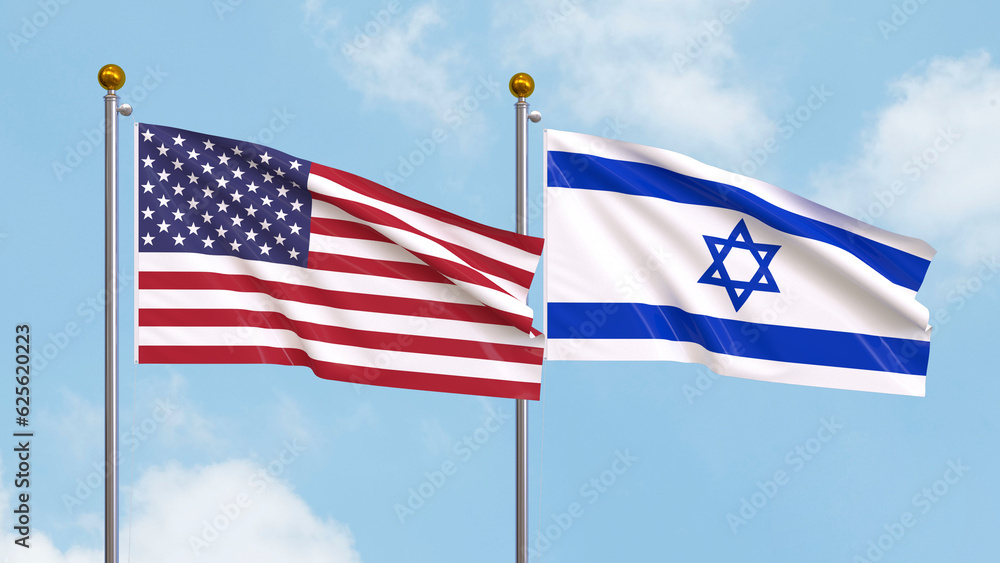
Audience
- Sentiment: Positive
- Political Group: Conservative
- Age Group: 30-50
- Gender: Male
Overview
- Netanyahu praises Trump as the greatest friend Israel has had in the White House.
- Key actions during Trump’s presidency included recognizing Jerusalem as Israel’s capital and moving the U.S. embassy there.
- The Abraham Accords represented a breakthrough in normalizing relations between Israel and Arab nations.
A Historic Friendship: Israel and America Under Trump
In our world today, the headlines often tell stories of friendship, conflict, and the delicate balance of power between nations. One interesting example of this is the relationship between the United States and Israel. Recently, Israeli Prime Minister Benjamin Netanyahu praised former U.S. President Donald Trump during an interview, calling him “the greatest friend that Israel has ever had in the White House.” This statement is not just a throwaway line; it speaks volumes about how Netanyahu views the partnership between these two nations and the various accomplishments they achieved during Trump’s presidency.
A Strong Alliance
To understand the significance of this friendship, let’s take a moment to look back. The United States and Israel have shared a uniquely strong alliance for many years. Since Israel’s establishment in 1948, the U.S. has been a major ally, providing military support, economic assistance, and diplomatic backing. But during Trump’s time in office from 2017 to 2021, Netanyahu felt that this bond was taken to a new level.
During the Fox News interview, Netanyahu expressed his admiration for Trump, highlighting several key events that he believes have strengthened this relationship. One of the most notable was Trump’s recognition of Jerusalem as the capital of Israel. Previously, there was long-standing debate over whether Jerusalem, a city holy to Jews, Muslims, and Christians alike, should be recognized as Israel’s capital, especially given that Palestinians also claim it. Trump’s bold move not only changed the diplomatic landscape but also boosted Netanyahu’s standing in his own country.
The Move of the U.S. Embassy
Following the recognition of Jerusalem, another monumental action taken by Trump was the relocation of the U.S. embassy from Tel Aviv to Jerusalem. This was highly controversial and celebrated by many Israelis, but it also raised eyebrows among critics. They argued that moving the embassy would further escalate tensions in the already volatile region. However, Netanyahu saw it as validation of Israel’s claim to its capital and a clear affirmation of the deep connection between the two nations.
When Trump made these moves, he was not just changing the geography of where diplomats work; he was signaling a shift in U.S. policy that had remained unchanged for decades. This was more than just politics—it was a statement of support that resonated with many Israelis, further solidifying the bond between Israel and America.
The Abraham Accords: A Milestone for Peace
One of Trump’s most significant achievements, according to Netanyahu, is the Abraham Accords. This historic agreement aimed to normalize relations between Israel and several Arab nations, including the United Arab Emirates (UAE), Bahrain, Sudan, and Morocco. For years, peace in the Middle East seemed elusive, but the Abraham Accords represented a breakthrough.
You might wonder, “Why is this important?” Well, for decades, there has been tension and conflict between Israel and many of its Arab neighbors. The idea of peace agreements seemed far-fetched, much like trying to solve a complex puzzle with missing pieces. The Abraham Accords helped bridge that gap, creating new opportunities for trade, tourism, and diplomacy.
Netanyahu called this a “pivotal moment” for Israel, suggesting that these agreements could serve as a model for future relationships and demonstrate that peace through negotiation, rather than conflict, is possible. The optimism inherent in these agreements is encouraging, especially for those who care about the future of peace in this troubled region.
Criticism and Controversy
However, while Netanyahu expressed optimism about the future of Israel and its alliances, he also addressed some serious issues and the controversies surrounding U.S.-Israel relations. For one, he spoke against the idea of establishing a Palestinian state, suggesting that past attempts at this have failed, particularly citing the situation in Gaza.
To put it simply, this is a contentious issue. Many people believe in the right of the Palestinian people to have their own state, just as many Israelis feel that their own security must come first. The cycle of violence, political disagreements, and historical grievances creates a complicated backdrop for any discussions about peace. Netanyahu’s comments reflect his belief that a strong, secure Israel can do more to encourage peace than compromises that he argues could threaten Israel’s safety.
Looking Ahead: A Future of Potential
Benjamin Netanyahu’s perspective provides insight into how leaders view their partnerships and the challenges they face. He seems genuinely hopeful that the strong ties with Trump’s leadership could pave the way for more developments in the future. But with new leaders come new strategies, and the future of Israel’s relationship with the U.S. and its neighbors remains uncertain.
As young people today, you may feel overwhelmed by international news, particularly stories of conflict and alliances. It’s understandable to feel that these issues are outside your control, but it’s essential to remember that the decisions made by world leaders can have a direct impact on our lives. From climate change to technological advancements and even international relations, these discussions shape our world.
Get Involved: Your Voice Matters
What does this all mean for you? Understanding these alliances, their history, and their implications can empower you to think critically about the world around you. It’s essential to engage with these issues because they affect everyone—today and tomorrow.
So here’s a thought to leave you with: What do you think about the U.S.-Israel relationship? Do you believe that strong alliances are the keys to peace, or should countries focus more on compromise and dialogue? Share your thoughts in the comments below! Your opinion matters, and it’s important to discuss these critical issues that shape our world.





